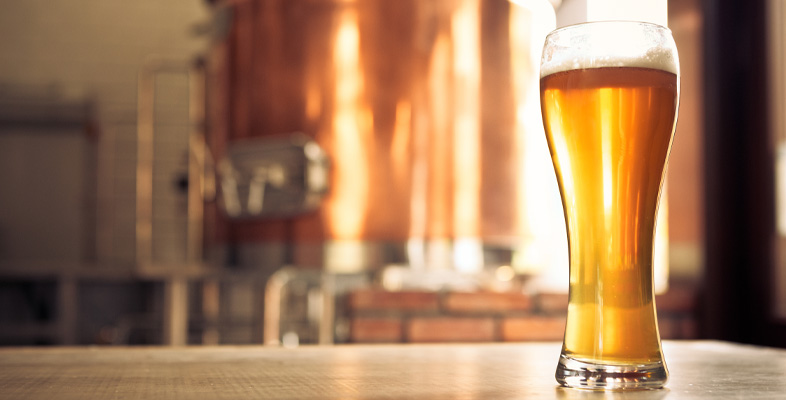In this free course, The science of alcohol, you will learn about the processes involved in the creation of alcoholic drinks – how they are produced, how the wide range of flavours are generated and how scientists ensure the safety of what we drink. You will also explore the effects of alcohol on our bodies in both the short and long term.
Alcohol production is an excellent example of how modern-day science and engineering has met twenty-first-century commerce. This course investigates the basics of the chemistry and biology behind alcohol production. You will be introduced to the fermentation process, how the ingredients used lead to different flavours, and what chemicals cause these differences. By understanding the processes used in preparation you will explore the different types of beer. A practical 'experiment' of a homebrew will run alongside this course. If you wish you can try your hand at brewing as you learn the science behind it all.
You will learn about the distilling process and how this occurs at a large scale. You will explore the natural botanicals that are used to infuse flavour into spirits and the chemicals within these.
The providence behind alcoholic drinks is incredibly important in terms of safety, but also from a commercial viewpoint. Therefore, you will study how this has developed over the years and explore the modern-day analytical instrumentation used to combat fraud and counterfeiting.
Alcohol is well known to affect the human body. You will learn about the reasons why we get drunk, and how the body processes alcohol, and the deleterious long term effects of excessive alcohol consumption. You will explore how taste and smell work and why this is important to our choice of drinks, and go in search of the best hangover cure.
Enrolling on the course will give you the opportunity to earn an Open University digital badge. Badges are not accredited by The Open University but they're a great way to demonstrate your interest in the subject and commitment to your career, and to provide evidence of continuing professional development.
Once you are signed in, you can manage your digital badges online from My OpenLearn. In addition, you can download and print your OpenLearn statement of participation – which also displays your Open University badge.

This course is accredited by the CPD Standards Office. It can be used to provide evidence of continuing professional development and on successful completion of the course you will be awarded 24 CPD points. Evidence of your CPD achievement is provided on the free Statement of Participation awarded on completion.
Anyone wishing to provide evidence of their enrolment on this course is able to do so by sharing their Activity Record on their OpenLearn Profile, which is available before completion of the course and earning of the Statement of Participation.
The Open University would really appreciate a few minutes of your time to tell us about yourself and your expectations for the course before you begin, in our optional start-of-course survey. Once you complete the course we would also value your feedback and suggestions for future improvement, in our optional end-of-course survey. Participation will be completely confidential and we will not pass on your details to others.
Earn this free Open University digital badge if you complete this course! The badge can be displayed, shared and downloaded as a marker of your achievement. The badge is awarded for completing the course and passing the quizzes.
Course learning outcomes
After studying this course, you should be able to:
- describe the process of fermentation and how it is used to create different varieties of alcoholic beverage
- compare brewing on the microscale and commercial scale, and describe how a spirit such as gin is produced on a large scale
- describe how alcohol affects the human body, both in terms of long and short term effects
- describe how chemicals within a drink give it its taste and aroma, and how the body recognises it
- discuss how modern-day scientists use cutting edge technology to protect against counterfeiting and contamination.
First Published: 21/08/2018
Updated: 20/01/2020
